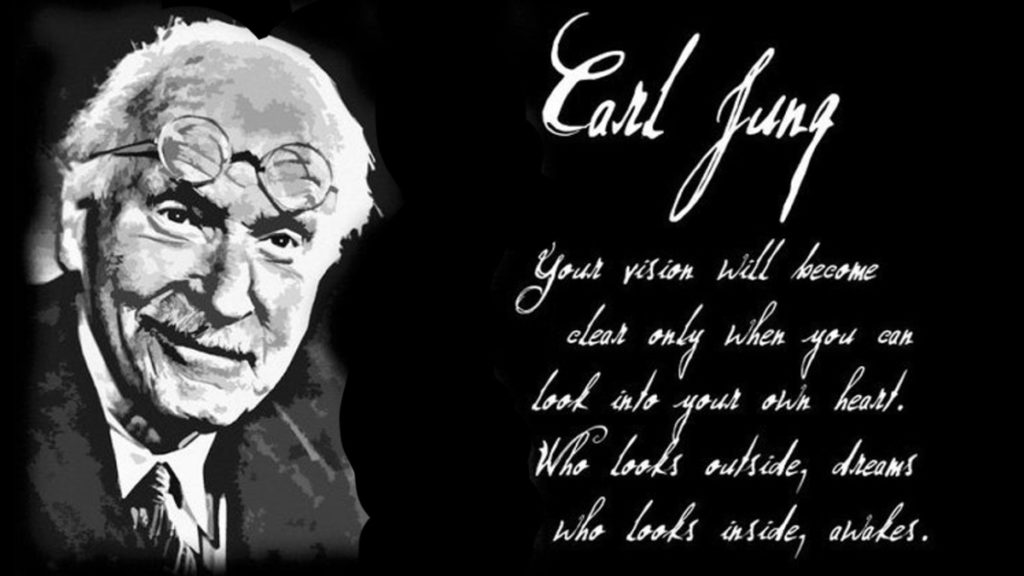“You are what you do, not what you say you’ll do ~
Carl Jung”
Carl Gustav Jung, a psychoanalyst, Jung (1875-1961) located in Zurich, Switzerland. He worked towards in psychiatry, anthropology, psychology, and religious studies. He was a good write and world traveler and gave many intensive lectures and interviews. Few of his books are published and even his correspondence letter also published, but few of them published after his death. Today many people follow his footsteps and practice Jungian counseling, psychology therapies and self-realization techniques in their counseling sessions. At the beginning of his career, Jung met Freud and he admired his knowledge, and he even told to tell me he cannot follow the footsteps of Freud because he opposed Freud towards his ideology in neuroses even with dream interpretation also.

“The meeting of two personalities is like the contact of two chemical substances: if there is any reaction, both are transformed.”
Jung First converges with Freud in his own words:
In 1906 afternoon at 1 pm, Jung met Freud met, they spent time 13hours with each other. Jung wrote one about Freud meeting him is wonderful experiences, he is one of the acute minds and most intelligent person and he is one of the remarkable people in his life. Jung has a different opinion about libido, Freud says libido is all about sexual energy but Jung’s opinion on libido is physical and psychic energy. Jung has a bundle of doubts about Freud’s theories, but he is impressed by his words and intellectuality. Jung thought he doesn’t have enough experience in that. Jung Hardly 31years when he met Freud, he was greatly attracted by his personality. Freud always considered sexuality is the cause for all emotional and psychological issues in the human mind, but Jung not fully convinced with that. Jung wrote:
“He invariably sneered at spirituality as being nothing but repressed sexuality, and so I said if one were committed fully to the logic of that position, then one must say that our whole civilization is farcical, nothing but a morbid creation due to repressed sexuality. He said, “Yes, so it is, and it’s being so is just a curse of fate we cannot help.” My mind was quite unwilling to settle there, but still, I could not argue it out with him.”
Despite the admiration the early Jung had felt for Freud he was unwilling to follow Freud in his desolate intellectuality where spirituality is nothing but a morbid interest, and civilization’s investment in religion is nothing but a farce. Freud talked about sexuality with religious fervor like it was his God (see Jung quote). To Freud sexuality was omnipresent, powerful, and the source of everything in the human mind. All life came from sexuality.
Once Jung becomes very close to Freud he understands his theory and his basic ideal always wishful thinking towards sex. Jung’s words towards Freud are “A peculiar emotional quality would come into his face” … “as a man would talk who had undergone a conversion”. Jung thought about Freud, he did not expect sexuality he did not talk about anything and he did not see beyond that because he did not wish to look another side. Jung was a very clear mind about Freud’s theory.
“Freud is blind to the dualism of the unconscious. He does not know that the thing that wells up has an inside and an outside and that if you talk only of the latter you speak of the shell alone.”
Jung believed and wrote in his Redbook “Dreams pave the way for life, and they determine you without your understanding of their language”. (Carl Jung, The Red Book, p: 233.)
References:
- Jung, C. G., Shamdasani, S. E., Kyburz, M. T., & Peck, J. T. (2009). The red book: Liber novus. WW Norton & Co.
- Freud, S., Jung, C. G., & McGlashan, A. (1994). The Freud-Jung Letters: The Correspondence Between Sigmund Freud and CG Jung (Vol. 135). Princeton University Press.
- Jung, Carl Gustav. Jung on active imagination. Princeton University Press, 1997.

Comments